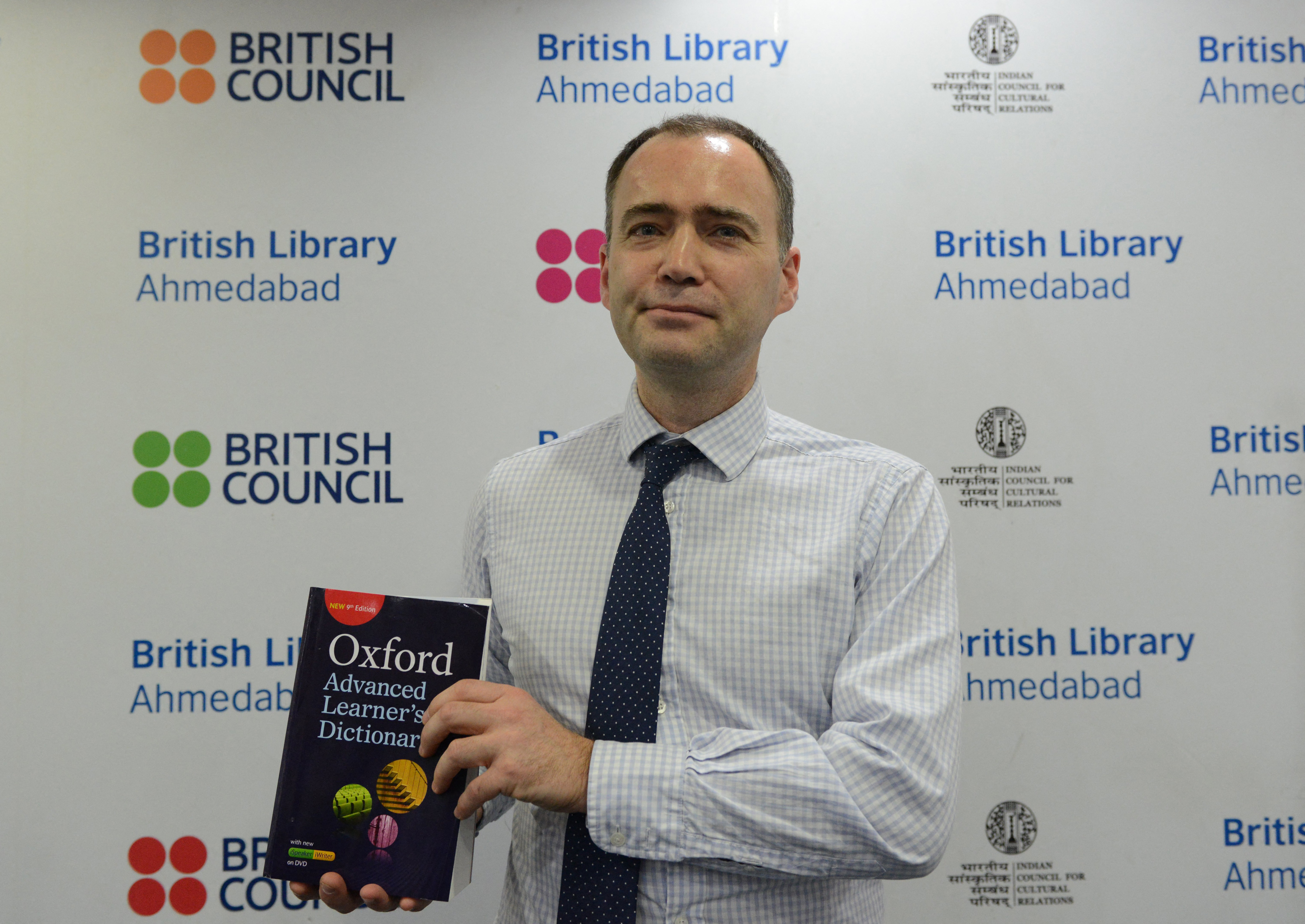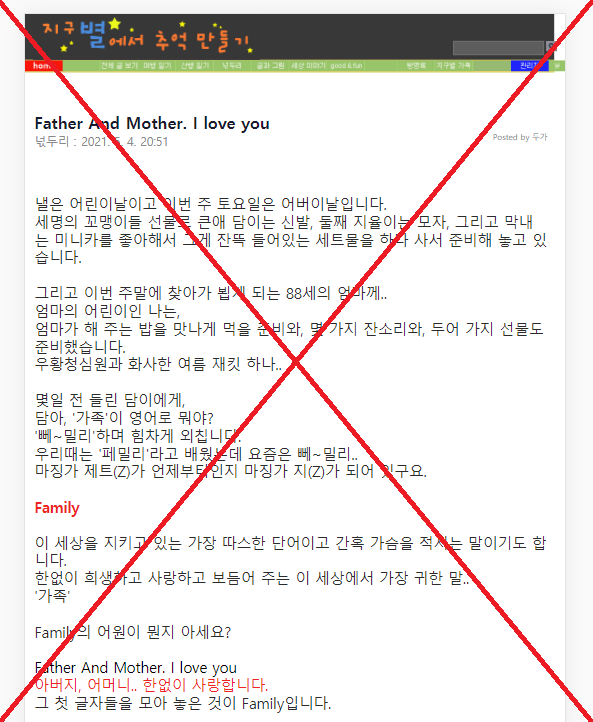
Korean posts mislead on origin of the English word ‘family’
- This article is more than four years old.
- Published on May 13, 2021 at 04:50
- 2 min read
- By SHIM Kyu-Seok, AFP South Korea
The claim was shared here on South Korean blogging platform Tistory on May 4, 2021.

“Do you know what the origin of the word ‘Family’ is?” the Korean-language post reads in part. “Father And Mother. I love you. Family is the arrangement of the first letters from this.”
The same claim was shared on Facebook here, here and here; and here and here on Naver Blog, another South Korean platform.
The claim, however, is false.
The Oxford English Dictionary traces the etymology of the English word “family” to the Middle French word “famile,” which in the 14th century meant a “group of people living under the same roof” or “household.”
The Middle French word in turn derives from the Latin word “familia,” meaning a household, including its servants, the OED notes. The Latin word is a combination of the word “famulus” meaning “servant” and the suffix “-ia,” it explains.
The Oxford Learner’s Dictionary, which is aimed at non-native English speakers, also explains that the word “family” is derived from the Latin word “famulus”, meaning “servant”.
Professor Joseph Howley, an expert in classical studies at Columbia University, agreed with the Oxford Dictionary’s explanation. He added that the Latin word “famulus” may have been related to similar words in other ancient Italian languages like Oscan.
Contacted by AFP, Professor Howley noted the Middle French definition for “familie” in the 14th century evolved in the 15th century to mean a “group of people related by blood,” before taking on “various generalized and transferred forms, as well as being adopted into English,” he wrote.
Professor Howley said the false claim circulating on social media resembled what academics call “folk etymology,” which is “when people make up their own explanation of how a word's origin relates to its meaning, independent of what we would think of as linguistic or scientific method.
He also pointed out that equating “ily” to “I love you” appears to be contemporary Internet slang.
Copyright © AFP 2017-2026. Any commercial use of this content requires a subscription. Click here to find out more.
Is there content that you would like AFP to fact-check? Get in touch.
Contact us
